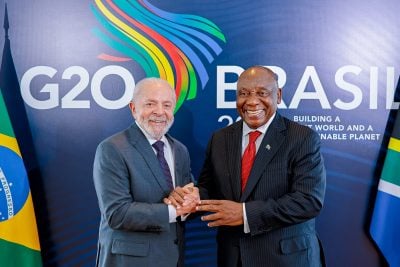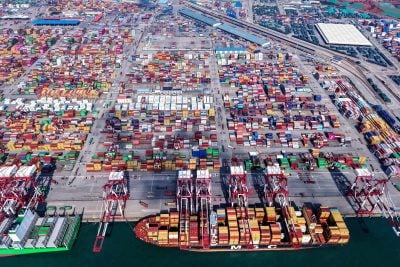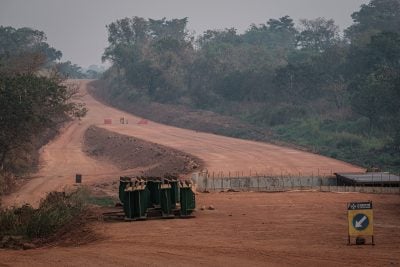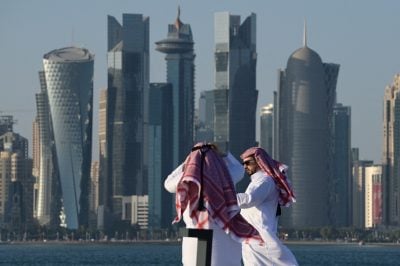New Year’s resolutions usually involve either taking up a new activity, or trying to break old habits. I usually try to do both, but I also use the opportunity to reflect on what issues I should and shouldn’t be focusing on at work. For this reason, two words I’m resolved to give up using in 2023 are “bankable” and “de-risking”.
In our world of investment and business on the continent, it’s incredibly difficult to avoid these words. They’ve come to feel fundamental to progressing the African economic growth and development story. Many or even most speeches in 2022 by African leaders included mention of at least one of these words. But they are problematic words, and words have power. Words set our intentions.
Pandering to investors’ phobia is risky
We tend to use and hear “bankable” especially when domestic and foreign banks and investors complain about the pipeline of high-quality projects on our continent. We fashionably mention “de-risking” in the next sentence – as the solution to said banks’ or investors’ phobia of investing into the continent, even once projects are ready.
We do so with good reason. The current data back up these sentiments. Africa attracted a paltry 1.2% of startup finance globally in 2022. It accounts for 3% of global trade, 5% of global foreign direct investment, and 2% of global renewable energy investment.
But here is the reason I doubt focusing on bankability or de-risking will drive a shift of this 1-5% needle on the investment meter.
What I’ve set out above are percentages that Africa attracts of investment and trade that is perceived as “positive”. But the continent attracts plentiful investment in less positive areas. We outperform others in fossil-fuel investment – we account for 8% of the global total. The size of our exports of raw materials means that our manufactured and value-added exports are tiny in comparison.
Resource exploitation goes ahead without ‘bankability’
The paradox is that simplistic, high-carbon, extractive activity on the continent does get investment. This type of investment doesn’t need bankability, it doesn’t need de-risking, even in a world where investors are supposedly committed to net zero carbon emissions.
This means that the problem is not white elephant projects or default risks per se. The problem is delivering new, bold loans or investments on our continent. Investors and banks simply prefer to invest in innovation, large-scale green growth and value-addition out of Africa, not in it. They are systematically stuck in their ways.
In other words, however many years African governments and organisations spend preparing projects, however many subsidies donors, multilateral development banks and development finance institutions line up to offer banks and investors as “de-risking” instruments – ranging from broad guarantees to power purchase agreements or insurance – the 1-5% needle still won’t shift. It will only shift when banks and investors become more serious about seeking new business models on the continent.
Other investors lead the way
How? Over the last 20 years, several new sources of finance and investment – notably Chinese and increasingly Arab and Turkish sources – have exhibited different preferences.
Indian investors have been doing so since the 60s. The proportions of the loans or investments from these countries into Africa are relatively higher compared to proportions of other high-income or upper middle-income countries. And demonstrably so. Indian firms have invested in pharmaceuticals and textiles; Turkish firms into tourism. Chinese banks have financed infrastructure projects that were first drawn up over 50 years ago by independence leaders, but have faced constant rejection due to – you guessed it – poor bankability.
The attitude of the Chinese, Indian or Arab banks and investors is not a coincidence, nor naive, nor is it “stealthily” subsidised through state ownership. These new banks and investors have seen innovative and large-scale African projects as bankable for three reasons.
First, because at their core these banks and investors prioritise the long-term (in economist-speak we call this using lower discount rates). Second, because they actively apply their own development experience and see the same happening in African countries. And third, crucially, they do not all have existing, primarily extractive-based loans and investments. As a result they use their logic, their experience, and focus on the long-term.
Hence, while some glibly reference Africa’s rising population in a way that implies both a potential positive demographic dividend and negative environmental destruction and overwhelming migration, banks and investors from India, Turkey or China see African demographics in clear-eyed economic terms. Where will the markets for Indian high-tech be in 10, 20, 30 or 40 years? Where will the diligent yet cheaper workers churning out everything from cheap consumer goods to electric vehicle parts be? It’s obvious: the African continent.
Thus, their primary question is not whether to invest in Africa or whether it is “too risky”. It’s a question of where and when – a strategic question. It’s a question of whether investors expect a first-mover advantage, or should wait until markets are more established. It’s a question of which specific African nations pose the lowest risk and largest opportunity now. These strategic choices can’t be influenced through more project preparation or de-risking instruments. They can only be influenced at the pitch stage.
This brings me to the words I plan to use instead of bankability and de-risking. In 2023, my focus will be on shifting perceptions and upgrading business models, setting out the clear economic case for specific African investments, backed by credible data. Thankfully, I know some excellent banks and investors around the world who will be ready to open the door to that.
Hannah Ryder is CEO of Development Reimagined, an African-led international consultancy based in China.
Want to continue reading? Subscribe today.
You've read all your free articles for this month! Subscribe now to enjoy full access to our content.
Digital Monthly
£8.00 / month
Receive full unlimited access to our articles, opinions, podcasts and more.
Digital Yearly
£70.00 / year
Our best value offer - save £26 and gain access to all of our digital content for an entire year!

 Sign in with Google
Sign in with Google 





